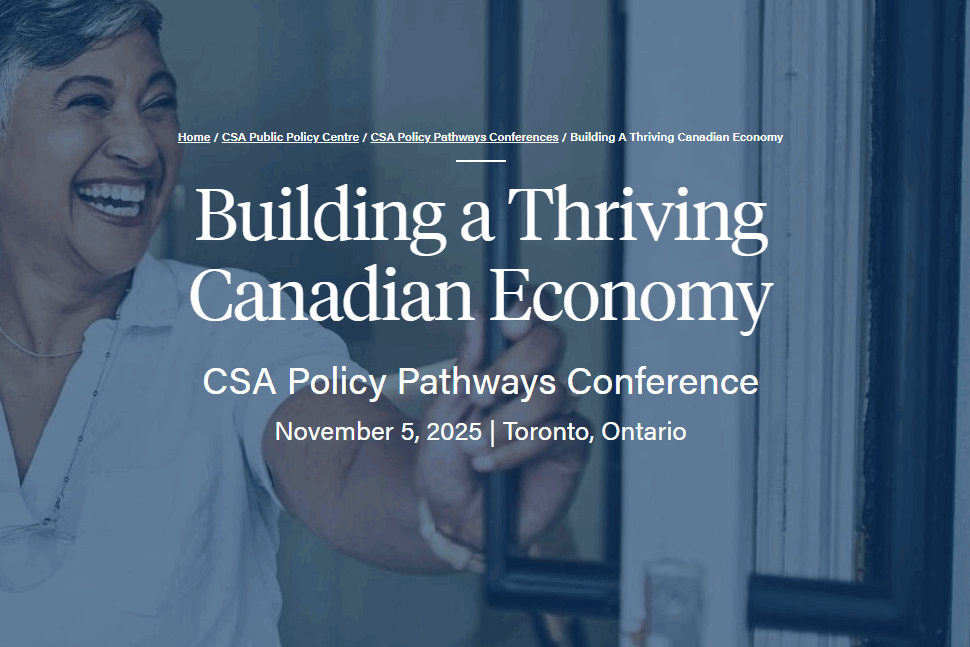TORONTO, May 8, 2024 – Last week, federal Minister of Finance Chrystia Freeland introduced the government’s 2024 Budget Bill, which contains exciting new updates about their made-in-canada employee ownership strategy. The Canadian Employee Ownership coalition (CEOC) is thrill ed that the government has introduced a new tax incentive that will level the playing field with competing succession options and lead to the widespread adoption of employee ownership in Canada.
“This new incentive, combined with the government’s recently created Employee Ownership Trust structure, is poised to create tens of thousands of employee-owners over the next few years said Jon Shell, a member of the CEOC’s Steering Committee.
This policy initiative comes at a critically important time. Over the next decade, 76% of Canadian business owners intend to retire, and the vast majority have no succession plan in place.
The creation of an Employee Ownership Trust and accompanying tax incentive will, for the first time, provide business owners with a viable alternative to selling their businesses to intemational private equity firms or competitors.
“This is smart business” said Tiara Letoumeau, CEOC Steering committee member. “With every sale to an Employee Ownership Trust, we’re increasing the likelihood that companies stay Canadian-owned, remain resilient in the face of economic turbulence, and provide meaningful wealth for working Canadians.
Employee Ownership Trusts are proven public policy. In the U.S., where these policies have been in place since the 1970s, 14 million American workers are already sharing in $2.1 trillion of wealth. Since the U.K. introduced these policies in 2014 it has witnessed rapid adoption, with more than 1,650 companies becoming employee-owned.
“As the CEO of an employee-owned company in a small town, I have seen firsthand what a difference it makes in culture, purpose and performance.” said Chad Friesen, CEO of Friesens Corporation, and member of the CEOC Steering Committee. With these policies in place, the CEOC looks forward to working with governments across the country to support substantial growth in employee ownership.
“Employee Ownership Trusts (EOTs) are proven public policy. In the U.S., where these policies have been in place since the 1970s, 14 million Americans workers are already sharing $2.1 trillion of wealth.”
About Social Capital Partners
Who owns the economy matters. Social Capital Partners believes working people deserve a fighting chance to build economic security and wealth. A Canadian nonprofit organization founded in 2001, we undertake public policy research, invest in initiatives and advocate for ideas that broaden access to wealth, ownership and opportunity, and that push back against extreme economic inequality. To learn more, please connect with us on LinkedIn or Bluesky or visit socialcapitalpartners.ca.
For more information, or to arrange an interview, please contact:
Katherine Janson
Director of Communications
Social Capital Partners
647-717-8674
katherine@socialcapitalpartners.ca
Share with a friend
Related reading
Creativity could be collateral damage of U.S. film tariff
When U.S. tariffs threaten to strike creativity and culture, we can't afford to stay quiet. SCP Fellow and POV executive director Biju Pappachan explores the implications of the U.S. imposing a tariff on foreign-made films and explains why this is the moment for Canada to stand up for its filmmakers, crews and cultural sovereignty. Film and television are not luxuries; cultural production is a strategic sector that delivers exports, jobs and soft power. Just as we negotiate for agricultural or industrial tariff exemptions, cultural production deserves equal protection.
Hype or help? Can crypto and stablecoins solve economic inequality?
Some cryptocurrency advocates are promoting the use of stablecoins as a common currency, arguing that this new currency could help the cost-of-living crisis and promote economic equality – particularly for young people. Law professor, money expert and SCP Fellow Dan Rohde is not convinced that crypto can help address economic inequality. In this explainer, he breaks down what stablecoins are and aren’t, and how to think critically about their promises.
Building a thriving economy: CSA Policy Pathways Conference
The CSA Policy Pathways Conference convenes leaders, thinkers and changemakers across government, business, community and academia to confront the pressing questions shaping our economic future. How can we build resilience in the face of global uncertainty? What will it take to unlock innovation and ensure its benefits are broadly shared? How do we design policies that promote competition, inclusion, and financial security? Join us on November 5, 2025, in Toronto, as we explore how we can take bolder steps toward a more resilient, innovative and equitable economic future.


